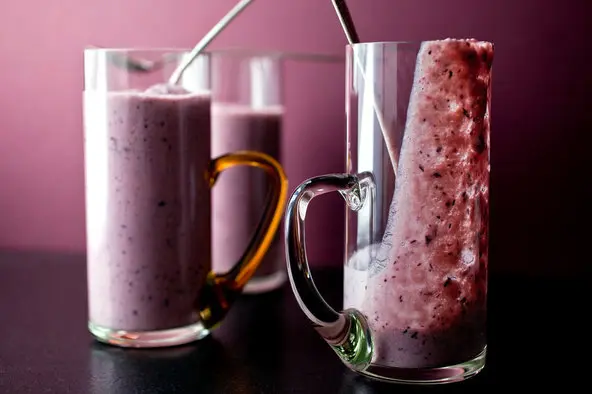
The Downside of Smoothies
“Just because there’s a leafy green in it doesn’t make it low-calorie.”
New York Times
By Roni Caryn Rabin
June 28, 2021
[This article was originally published on May 13, 2016.]
Q: Do I absorb more sugar and calories when I drink fruits and vegetables in a smoothie as opposed to just eating them whole?
A: It’s very likely that you are getting more calories and sugar when you drink a smoothie than when eating whole fruits or vegetables, said Sarah B. Krieger, a registered and licensed dietitian nutritionist who spoke for the Academy of Nutrition and Dietetics, a professional trade group. Smoothies enjoy a “health halo” that can be misleading, “but the bottom line is quantity, and people are often consuming a 20- or 24-fluid-ounce smoothie. That’s a lot.”
Even if you’re making your smoothie at home, using only fruits and vegetables with no other added ingredients, you can drink it in just a few minutes, compared with the 15 or 20 minutes it would take to eat the same fruits or vegetables whole, Ms. Krieger said. And if you’re drinking smoothies frequently, you may be consuming a lot more fruit than you would otherwise.
The fiber in whole fruit “acts as a net” to slow down the process by which the body turns sugar from food into blood sugar, Ms. Krieger said, and though the smoothie still contains fiber, it has been pulverized during the blending process. As a result you’re likely to feel hungrier again sooner after drinking the smoothie than you would have had you eaten the same fruits and vegetables whole.
And if you aren’t preparing your own smoothies, buyer beware. Commercially prepared and store-bought smoothies often contain added sugar, honey or other sweeteners, protein powder that’s often sweetened, or milk, yogurt, nut butters and other ingredients that make them more filling — and more palatable — but also add calories.
“Just because there’s a leafy green in it doesn’t make it low-calorie,” Ms. Krieger said, adding, “There’s a fine line between a smoothie and a milkshake.” Smoothie King’s 20-ounce Hulk Strawberry, for example, is made with butter pecan ice cream — and contains almost 1,000 calories.
Commercially prepared smoothies aren’t even always prepared from whole fruit. The “strawberry base” of Starbucks’ strawberry smoothie, for example, consists of reconstituted strawberry purée, white grape juice concentrate, natural flavoring and lycopene coloring (it also contains banana, ice, milk, fiber and protein powder); the 16-ounce size has 300 calories.




